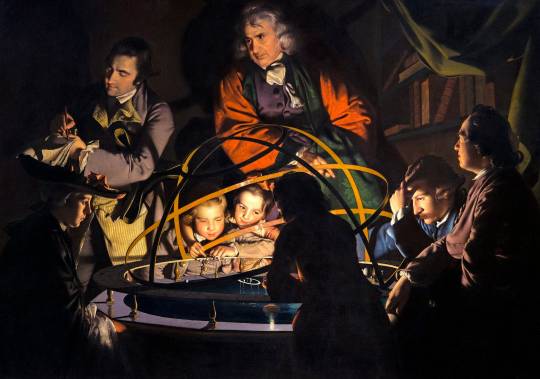#hijab in china
Text
Other Countries in the Squirrel and Hedgehog AUs, Part One, Plus OCs
Chaand Hadia (Moon Gift, Urdu)

For my AUs, I will have Flower Hill (North Korea) be very close to the country of Chaand Hadia (Moon Gift), located the left of the country. I'm ignoring the distance in between them for now, because this is fiction and I have decided it.
Location and Geography: Shares a border with Flower Hill. Plains, plateaus, mountains, rivers, fertile valleys, and ocean make for varied regions.
The Farmhouse Villa for Lily Bell in the Thorn Thicket most likely takes place a few hours from the border between Flower Hill and Chaand Hadia.
Government: democratic parliamentary federal republic but local cultural rules specific regions.
Economy: The economy is largely based off of herbs, medicines, and dyes, with large exports of textiles. Essential medical compounds are grown in villages around the country or on mountaintops. Herbalists are seen as an essential job, and doctors that travel between small villages and neighboring countries are commonplace.
Flower Hill provides a lot of silk to Chaand Hadia, and receives essential medicines, dyes, and weapon components (in secret) that they may not have been able to grow or find themselves.
Demographics: hog deer, goats, sheep, boars, mongoose, Indian pangolin, striped hyenas, black and brown bears
Culture: Each province has it’s own rules and specific clothing styles based on the standard. Important families carry a detailed pocket compass to identify themselves, although the meanings can vary, and the presence of one can be a coded message.
Foreign Relations: Balanced and outwardly neutral, although getting more and more friendly with Flower Hill. Very friendly with Chambelli Koh.
Relation to Flower Hill: Alongside regular trade, secretly smuggles extra weapons and medicines into Flower Hill, possibly even up to weapons of mass destruction. After all, if Flower Hill falls the the Weasel Unit, their own coastlines will be next. Will not do anything overtly to support their neighbor, though, unless pushed.
Traditional Clothing Style (Not military attire): Shalwar kameez, hijab, Niqab. Clothing used to be more plain until they began acquiring large amounts of silk from Flower Hill.

OC Character: Soor-Hiran (May appear Briefly)

Rei-Does-Stuff mentioned the idea of a goat that could smuggle weapons and such into Flower Hill, and to Geumsaegi. I made a joke about the deer I had made in Lily Bell in the Thorn Thicket, who does kind of do that. They responded with the concept of the Pakistani hog-deer, with absolutely no hesitation. Later, they discussed how Pakistan was such a close ally of North Korea, to the point that they smuggled nuclear weapons into the country. Well, that was also a background plot (not a spoiler), and the deer smuggling weapons and poisons may be a larger plot-line in the current AU. So, we got to talking.
As such, I would like to formally dedicate my Hog-Deer Smuggler, Soor-Hiran, to @Rei-Does-Stuff.
Gender: Ambiguous.
Country: Chaand Hadia (Moon gift, Urdu)
Alliance: Chaand Hadia
Attire: Hijab, loose trousers and shirts (Shalwar kameez), but province styles are blended together.
Skills: Herbs, medicine, espionage, deceit, eavesdropping, eidetic memory of mountain paths and plants, and schematics.
Weapon: Poison needles.
Day job: traveling herbalist, doctor. Is allowed to travel between Chaand Hadia and Flower Hill, and works with the commanders in Cherry Valley, as permitted by their own government. Alongside medicines, they bring materials for weapons, schematics, and messages pertaining to Weasel Unit movements and acquisitions. Their village is next to the border of Flower Hill, so it is easy to travel in between.
Works with: markhor goat group of apprentice herbalists and couriers. But they may be more than they seem to be...
Secret Job and backstory: While they will happily accept requests from Flower Hill, Soor-Hiran's group secretly works as a black market smuggler. Other weapons, foods, stolen items, jewels, and information are sold to those willing to pay the price. So far, the Weasel Unit has been unable to afford their cost, but how desperate will they get until they are willing to pay?
Likes: Silk, moths, flowers
Dislikes: being belittled for their culture
Personal Item: Beloved family antique pocket compass/sundial. This specific heirloom allows them free entry into Flower Hill.

OC Character: Pangulggot

Gender: Male
Country and Alliance: Chaand Hadia
Attire: loose trousers and shirts (Shalwar kameez)
Skills: medicine, ignoring things that don't apply to him.
Weapon: nothing other than his scales and claws. Is far too mild mannered to fight back if attacked for the most part. His scales prevent him from being harmed.
Day Job: traveling herbalist and medicine worker, bringing important medicinal components to Flower Hill
Works with: markhor goat group of apprentice herbalists, guards, and couriers
Likes: his job, Lily of the Valley flowers
Dislikes: People trying to eat Lily of the Valley Flowers. They are poisonous, but yet...
Backstory: They do very much love their name. However:
Pangulggot is aware that authorities act strangely when they say their name, and tries to hide it, since there is something going on that they probably should not know. Possibly a dangerous individual with the same name, or a military code word…?
Whatever it is, they sure notice that it gets them pulled into empty rooms while going through customs and checkpoints as ‘randomly selected,’ for extra questioning that sure sounds like they contain specific phrases for a specific person he is not.
#squirrel and hedgehog#sah#SaH#lily bell in the thorn thicket#rei-does-stuff#they have only read the first few chapters lol#the rod that blocks the lightning#north korea#china#pakistan#hijab#squirrel and hedgehog OCs#long post#world building#info dump#feel free to ask questions as long as they are nice and polite
12 notes
·
View notes
Text
Yesterday, I made the decision to officially jump from hijab to niqab. A freedom and choice many women don’t have.
Today, I think of the women of France
The women of Quebec
The women of Switzerland
And the women of china, who don’t even have the freedom to cover their hair
Everyone should have the choice of whether or not to practice their faith. We should be able to freely choose how much or how little we get to cover.
#islam#muslim#faith#hijab#niqabi#niqab#hijabi#religious#religion#religious right#religious rights#china#France#switzerland#quebec
72 notes
·
View notes
Text

Palestinian leader Mahmoud Abbas wrapped up a trip to #China Friday after seeking economic aid and voicing support for China’s anti-Islam and oppressive policies against #Uyghur Muslims in East Turkestan.
In the statement, the Palestinian Authority said issues regarding China’s policy toward Muslims in Xinjiang have “nothing to do with human rights and are aimed at excising extremism and opposing terrorism and separatism.”
#islam#muslims#islamophobia#ummah#hijab#muslim#allah#hijabi#muslimah#dawah#China#xinjiang#uyghur#Uyghurs
7 notes
·
View notes
Text
youtube
#Ukraine#Russia#Putin#grain#BlackSea#Odessa#NorthKorea#explosion#TravisKing#USA#Iraq#Iran#hijab#SouthAfrica#NewZealand#WorldCup#soccer#China#Youtube
2 notes
·
View notes
Text
طرفدارانِ «زن، زندگی، آزادی»! مُهرهی صهیونیستها نباشین.
A "Zionist Operation"; that's what we are dealing with in Iran.
#جمهوری_اسلامی_ایران#مهسا_امینی#زن_زندگی_آزادی#Resistance#Iran#FreePalestine#Yemen#Syria#Iraq#Afghanistan#Gaza#Gaza Genocide#Keep Talking About Palestine#Venezuela#Cuba#Feminism#Human Rights#Retaliation#Hijab#Iranian Women#China#ISIS#Russia#Imperialism#Pahlavi hashtag#Caleb Maupin#Mahsa Amini#Woman Life Freedom
1 note
·
View note
Text
They’re not protesting China. China has labor camps being used to mass produce clothing and related products. They also arrest and send defectors back to North Korea.
They’re not protesting North Korea. They torture citizens who fail to follow the country’s extreme rules. There is no freedom of speech or expression, and defectors face torture or even death if caught.
They’re not protesting Iran. The morality police regularly kidnaps women and tortures them for failing to properly cover their hair. Recently, the citizens tried to rise up after the police beat a woman to death for not wearing proper hijab. The government’s response was mass arrests, torture, and rapes.
I could go on and on - the transgressions of many countries in the Olympics are endless. So why are we only upset at one country?
The irony of certain countries being praised for refusing to compete against Israel is unreal. Those same countries being praised have horrific violations of their own. Yet, no mention of them.
975 notes
·
View notes
Text
Calling for the destruction of a country is hateful and wrong, and it disproportionately occurs against Israel.
When Russia attacked Ukraine, was there a massive movement to wipe Russia off the map?
When Iran was killing girls for not wearing a hijab, was there a massive movement to dismantle the entire country of Iran?
While China systemically commits genocide against its Uyghur population, is there a massive movement to get rid of China?
Even if, and this is a huge if, the accusations against Israel were true, there is no justification for trying to wipe Israel off the map.
There just isn't.
And, considering Israel is the only Jewish state in the world based on the concept of a Jewish self-determination in our indigenous homeland, such calls are also antisemitic.
#jumblr#jewish#judaism#jew#proud israeli#israel solidarity#opinion#discourse#antisemitism#antizionism is antisemitism
730 notes
·
View notes
Text
Watching videos commenting on miracolous episodes talking about racism is interesting (Especially when I'm older than when I watched them + I'm European, specifically Polish)
Note, if you are outraged by Chloe's defense, I'm sorry, but Europe and the US don't really have the same approach (Which can be frustrating for non-white Europeans)
First of all, the text about sushi… Sushi was created in China and then came to Japan, which means that this particular text by Chloe is not entirely racist, I know, shocking, but Thomas didn't do his homework before writing the episode, so it came out strangely

As for Chloe confusing a Chinese with a Japanese, unfortunately I have an explanation, it is related to the fact that in Europe they speak collectively, i.e. "Asian", so yes, if we assume that Chloe only dealt with Japanese, and not Chinese, it was unconsciously confuses them with each other (I remind you, this is Europe, not the USA, here the topic of racism is more complicated), anyway, I don't believe that she's the only one who confuses Asians with each other, because we're talking about Europe, where such confusion is more "Normal" (however it sounds), why is she the only one? Why don't any adults do this? This is unrealistic and distorts the reality in Europe
Besides, the very fact that the series is written by a Frenchman who has no clue about racism says a lot, hello, you live in a country where Muslims are persecuted (There is a ban on wearing hijabs), so what more can I say about all this?

It's unrealistic that only Chloe confuses a Chinese and a Japanese with each other, older generations should also have a problem with it, because the action takes place in Europe, not in the USA, plus, older generations are more racist than the younger ones (Because the younger ones have access to for information), so it doesn't make sense that none of the adults are racist, Thomas, do you know what country you live in?
So yes, taking the action in France, i.e. Europe, in practice made Chloe's racism seem even more strange, because they could make it seem that she is not the only person in the whole country who has a problem with it, but it is known that Thomas Astruc prefers to pretend, that in his country and in the whole of Europe racism does not happen (And only a white fourteen-year-old child is the only racist… Yes, it sounds bad)
Europe is not the USA, you could have searched the Internet for information about current acts of racism in your country or Europe itself to present them in your series, but you decided to do something that makes no sense because of the place of action which is France, it looks so unrealistic, when you are European and you know the approach of people from Europe, antagonizing Chloe for racism when she is a fourteen-year-old living in Europe (where such racism is more common, because it is not the USA), to punish her for… As a European, she does not have an attitude like Americans and she took bad examples from adult Europeans
Thomas' attitude towards Chloe is even worse for this reason, he forgets that children are not born racist, they acquire this through adults, the Internet and other media (Like the news), throwing Chloe on the pile for being racist is harmful, yes, we should talk about racism and fight it, but hate a child for being a racist, because adults taught her that? A child's mind is still developing, it shouldn't be done, educating children is necessary, so Thomas, you fucked up the whole series
As a European, I have more reason to criticize this series for how it ignores the very topic of racism in Europe in order to antagonize a child (Fictional, but a child), if you want to show racism, then use information about it, not create worse versions of racism from the 70s -those from America
I had to describe it because it's frustrating how Americans hate Chloe for racism and they have no idea what it looks like in Europe, instead of bashing Thomas for showing racism in such an unrealistic way, they attack a fourteen-year-old cartoon girl, it's fucked up on many levels
Thomas doesn't know anything about racism, especially in Europe, if he did, only Adrien and Marinette would know it's racism, and the adults, including Chloe, wouldn't see it as a problem because they're fucking adult Europeans and we have unrealistic shit that pretends to be that it is progressive because it talks about racism, but the truth is that there is nothing there, no realism in this topic (Compare to US productions from the 70's, even they did it better…), this episode would be better if it showed real racism, and not the one just to show how stupid Chloe is -_-
Yes, I had to get this out of the way because a lot of people in the fandom are Americans and they look at Chloe from an American perspective, the problem is that Chloe is not American, she is French and that changes the perspective, yes, racism is bad, but remember that in Europe operates on different levels and Thomas Astruc presented it so badly that if you are from Europe, you
it hurts
#thomas astruc#thomas astruc salt#chloe bourgeois#racisim#asian#marinette dupain cheng#marinette dupen chang#miraculous marinette#marinette cheng#miraculous ladybug#adrien agreste#adrien#ml ladybug#cat noir#mlb marinette#france#europe#ml salt#ml writers salt#ml writing salt#ml writing critical#ml writing criticism
71 notes
·
View notes
Text
More talk about situation in Gaza. Keeping it under a keep reading because I know it isn't my usual content.


As seekers of aid are outright slaughtered bu Biden's tank shells it is important to remember that most worldwide famine is occurring in Gaza.
Right after the ICJ trial Israel immediately made accusations against the UN organization called UNRWA to shift the day's headlines from Israel being found guilry of plausible genocide to the UNRWA accusations.
The accussation is that 12 out of 13,000 UNRWA employees were involved in October 7th. With this accussation most western countries immediately and without evidence dropped 100 percent of funding for UNRWA. The employees had already veen fired and an investigation ordered to follow up.
Now it has been dropped to 6 out of 13,000 employees that are being accused but with other claims and allegations that there is no evidence for.
https://news.sky.com/story/israeli-intelligence-report-claims-four-unrwa-staff-in-gaza-involved-in-hamas-kidnappings-13059967
At the same time that starvation is increasing and funding for aid is cut we have a new atrocity. The Israeli government is allowing and even making visits to a protest of aid being delivered to Gaza.
Aid to be delivered has been blocked for days, protesters won't allow it in and Israel is doing nothing to stop the protests.
Between UNRWA allegations and protests Palestinians are getting less aid than ever when they need it most. The death toll will rise exponentially if something isn't done.
And while it happens we have western media outlets making claims to discredit UNRWA.



These images show that Carrie Keller-Lynn was an IDF member. She uncritically parrots Israel's lies.
And this isn't the only time the WSJ has written pro-Israel propaganda. A vote for a ceasefire was given the headline "Chicago votes for Hamas". They have started hiding the authors under the editorial board.

Meanwhile American protestors continue to protest our politicians. Muslim women were uninvited to a Harris event because they were wearing hijabs.
Pelosi said calls for a ceasefire needed to have financing investigated by the FBI because it's "Putin's message." She also screamed at protesters to "go back to China."
The current administration continues to escalate conflict in the Middle East while insisting that all these bombing campaigns and troops on the ground aren't technically a war.
Biden officials continue to say that the ICJ found Israel innocent of genocide despite that not being what the interim hearing was for.
This is a pro-Israel lie. The interim hearing was to find if it was plausible that Israel was committing a genocide, make provisional rulings. And see if the case has standing.
It WAS found that Israel was committing a plausible genocide, provisions WERE made, and the case WAS found to have standing to continue.
And while the court case for Biden being complicit in genocide was thrown out, it is historic that he was the first president sued for genocide and that the judge argued that he needed to re-examine his unflagging support for Israel. It was thrown out on technicalities and the justice department arguing the court didn't have jurisdiction. But they didn't argue the merits.
The judge said, “It is every individual’s obligation to confront the current siege in Gaza, but it is also this Court’s obligation to remain within the metes and bounds of its jurisdictional scope. There are rare cases in which the preferred outcome is inaccessible to the Court. This is one of those cases.”
https://theintercept.com/2024/02/01/gaza-biden-genocide-lawsuit-ruling/
Please keep the pressure up. Don't forget Palestinians. Flock to protests. Call your reps. Leverage your vote. Call out propaganda. Take every action in your power no matter how small.
#free palestine#free gaza#stop war#stop genocide#genocide joe#stop israel#stop palestinian genocide#Stop propaganda
118 notes
·
View notes
Text
Reading the World

In 2023, I challenged myself to watch a movie from every country in the world during the year, which I more or less succeeded. At the start of this year I decided to read a book from every country in the world (without the time restraint) and got a map to track my progress along with a challenge on Story Graph.
List of countries and books below the cut
Current count: 37
Afghanistan:
Albania:
Algeria:
American Samoa:
Andorra: Andorra: a play in twelve scenes by Max Frisch
Angola: The Whistler by Ondjaki
Anguilla:
Antigua and Barbuda:
Argentina: Our Share of the Night by Mariana Enríquez
Armenia:
Aruba:
Australia:
Austria:
Azerbaijan:
Bahamas:
Bahrain:
Bangladesh:
Barbados:
Belarus:
Belgium:
Belize:
Benin:
Bermuda:
Bhutan: Folktales of Bhutan by Kunzang Choden
Bolivia:
Bosnia and Herzegovina:
Botswana:
Brazil:
British Virgin Islands:
Brunei:
Bulgaria:
Burkina Faso:
Burundi:
Cambodia:
Cameroon: The Impatient by Djaïli Amadou Amal
Canada: The Gift is in the making: Anishinaabeg Stories retold by Amanda Strong and Leanne Betasamosake Simpson
Canary Islands: Dogs of Summer by Andrea Abreu
Cape Verde:
Cayman Islands:
Central African Republic: Co-wives, Co-widows by Adrienne Yabouza
Chad:
Chile: The Twilight Zone by Nona Fernández
China: The Secret Talker by Geling Yan
Christmas Islands:
Cocos Islands:
Colombia:
Comoros:
Cook Islands:
Costa Rica:
Croatia:
Cuba:
Curacao:
Cyprus:
Czech Republic:
Dem. Rep. of Congo:
Denmark:
Djibouti:
Dominica:
Dominican Republic:
Ecuador:
Egypt:
El Salvador:
Equatorial Guinea:
Eritrea:
Estonia:
Eswatini:
Ethiopia:
Falkland Islands:
Faroe Islands:
Fiji:
Finland:
France: The Count of Monte Cristo by Alexandre Dumas
French Guiana:
French Polynesia:
Gabon:
Gambia:
Georgia:
Germany: At the Edge of the Night by Friedo Lampe
Ghana: Wife of the Gods by Kwei Quartey
Gibraltar:
Greece:
Greenland:
Grenada:
Guam:
Guatemala:
Guernsey:
Guinea:
Guinea-Bissau:
Guyana:
Haiti:
Honduras:
Hong Kong:
Hungary:
Iceland:
India: Coming Out as Dalit: A Memoir Of Surviving India's Caste System by Yashica Dutt
Indonesia:
Iran: Darius the Great is Not Okay by Abid Khorram
Iraq: Frankenstein in Baghdad by Ahmed Saadawi
Ireland:
Isle of Man:
Israel:
Italy:
Ivory Coast:
Jamaica: When Life Gives You Mangos by Kereen Getten
Japan:
Jordan:
Kazakhstan:
Kenya:
Kiribati:
Kosovo:
Kuwait:
Kyrgyzstan:
Laos:
Latvia:
Lebanon: Beirut Hellfire Society by Rawi Hage
Lesotho:
Liberia:
Libya: Zodiac of Echoes by Khaled Mattawa
Liechtenstein:
Lithuania:
Luxembourg:
Macedonia:
Madagascar:
Malawi:
Malaysia:
Maldives:
Mali:
Malta:
Marshall Islands:
Mauritania:
Mauritius:
Mexico: Silver Nitrate by Silvia Morena-Garcia
Micronesia:
Moldova:
Monaco:
Mongolia:
Montenegro:
Montserrat:
Morocco:
Mozambique:
Myanmar: Smile as They Bow by Nu Nu Yi
Namibia:
Nauru:
Nepal:
Netherlands: We Had to Remove this Post by Hanna Bervoets
New Caledonia:
New Zealand:
Nicaragua:
Niger:
Nigeria: Buried Beneath the Baobab Tree by Adaobi Tricia Nwaubani
Niue:
Norfolk Island:
North Korea: A Thousand Miles to Freedom: My Escape from North Korea by Eunsun Kim
Northern Mariana Islands:
Norway: Blind Goddess by Anne Holt
Oman:
Pakistan: Hijab Butch Blues by Lamya H
Palau:
Palestine: The Skin and Its Girl by Sarah Cypher
Panama:
Papua New Guinea:
Paraguay:
Peru:
Philippines:
Pitcairn Islands:
Poland: Return from the Stars by Stanisław Lem
Portugal:
Puerto Rico:
Qatar:
Rep. of the Congo:
Romania:
Russia:
Rwanda: Baking Cakes in Kigali by Gaile Parkin
Saint Barthelemy:
Saint Helena, Ascension and Tristan da Cunha:
Saint Kitts and Nevis:
Saint Lucia:
Saint Martin:
Saint Pierre and Miquelon:
Saint Vincent and the Grenadines:
Samoa:
San Marino:
Sao Tome and Principe:
Saudi Arabia:
Senegal:
Serbia:
Seychelles:
Sierra Leone:
Singapore:
Sint Maarten:
Slovakia:
Slovenia:
Solomon Islands:
Somalia:
South Africa:
South Korea:
South Sudan:
Spain:
Sri Lanka: The Seven Moons of Maali Almeida by Shehan Karunatilaka
Sudan: The Translator: A Memoir by Daoud Hari
Suriname:
Sweden: Fire from the Sky by Moa Backe Åstot
Switzerland:
Syria: The Book Collectors: A Band of Syrian Rebels and the Stories That Carried Them Through a War by Delphine Minoui
Taiwan:
Tajikistan: The Sandalwood Box: Folk Tales from Tadzhikistan by Hans Baltzer
Tanzania:
Thailand:
Togo:
Tokelau:
Tonga:
Trinidad and Tobago:
Tunisia:
Turkey:
Turkmenistan:
Turks and Caicos Islands:
Tuvalu:
Uganda:
Ukraine:
United Arab Emirates:
United Kingdom: Poyums by Len Pennie
United States of America: Reclaiming Two-Spirits: Sexuality, Spiritual Renewal & Sovereignty in Native America by Gregory D. Smithers
United States Virgin Islands:
Uruguay:
Uzbekistan:
Venezuela:
Vietnam:
Wallis and Futuna:
Western Sahara:
Yemen:
Zambia:
Zimbabwe: We Need New Names by NoViolet Bulawayo
13 notes
·
View notes
Text
THE TRUTH ABOUT HAMAS
I need to spell it out again.
Hamas are not the Palestinian freedom fighters a lot of people want them to be.
The origin is the following.
Various peoples have laid exclusive claim to what they call the 'Holy Land' for millenia, and fought insane wars and committed genocides over it. Jews and Muslims are far from the first.
In recent centuries, Jews and Muslims used to live in peace in this place till WWI.
In WWI, the British Empire moved their armies over there and asked the Jews to let them pass through, so they could fight the Ottoman Empire. (The back-then powerful islamic empire that controlled modern-day Türkyie, Syria and the Balkans)
In exchange, the Jews would get the full right to live in the Holy Land after the British were done.
Problem is, the Brits promised the Muslims the same.
They both agreed, the Brits passed through and wrecked the Ottoman Empire.
After WWI, the Jews and Muslims rightfully asked whose land this was now, and the Brits, together with the French, devised the Two-State Solution, that half of the land would be the Jewish Israel and the other half would be the Muslim Palestine. It was agreed upon in principle, but both Jews and Muslims kept fighting and militarizing.
Modern-day Israel is NOT a European settler-colonial project, as Palestinians like to put it.
As explained above, the Jews and Muslims have both been there for a while.
However, modern-day Israel, founded in 1948, has become oppressive against Palestinians.
The justification for that was the Holocaust. European Jews, after WWII, said that they needed their own state in order to be safe from antisemitism, as over 6 million Jews had been murdered by the Nazis. (The Nazis had used the Jews as a scapegoat and portrayed them as a world conspiracy, in order to explain world politics to their supporters in a way that aligned with Hitler's insane ideology.)
Because of that, the Jews got incredibly defensive and any aggressive or oppressive idea from an Israeli leader was justified with "We need to protect our Jewish people!"
Whether or not it was actually justified didn't and doesn't matter to them.
Those aggressive and oppressive ideas include killing/expelling all the Palestinians, as motivated by the territorial conflict I explained earlier.
The other side of the current conflict and the reason Hamas exists and can inflict so much damage on Israel is the Islamic Republic of Iran.
In the 80s, Iran went through a religiously-led revolution against the military dictatorship. As a result, the so-called Islamic Revolutionary Guard Corps (IRGC) was established, and is under the command of religious leader and self-styled 'Supreme Leader' Ayatollah Khamenei. He's been ruling Iran with an iron fist for over 40 years.
The supposed republic and democracy of Iran is fake, as is typical for most dictatorships these days. Few dictatorships actually style themselves as such, they like to pretend that they're democratic. (Factually, the elections don't matter, the ballots are trashed anyways and the Parliament is a so-called 'Rubber Stamp Parliament', meaning a Parliament that only exists to give a faux-democratic justification for the dictator's orders by putting a rubber stamp on it.)
The IRGC is actually extremely unpopular in Iran, and most Iranians would prefer diplomatic relations with the West and the USA, over what they have now, which is diplomatic relations with russia and China. However, the IRGC's armed gangsters are so present and so ready to shoot a woman who's wearing her hijab (Islamic headscarf) improperly on the spot, that they can't do anything about it.
To justify his grip on power, Khamenei paints Israel as the archenemy of and constant threat to Iran, just like how Israeli hardliners, including the current guy, Prime Minister Benjamin Netanyahu, paint Palestine as the archenemy of and constant threat to Israel.
However, the IRGC can't afford fighting Israel by themselves, since that would mean less armed gangsters in Iranian cities, enforcing the Ayatollah's will.
This is why Iran, using their ties with russia and China, as well as their wealth of and wealth acquired via crude oil production, has funded and armed various miltias in every other Middle Eastern country where they could do it.
They are:
Popular Mobilization Forces (PMF) and Kata'ib Hezbollah in Iraq
Hezbollah and Palestinian Islamic Jihad (PIJ) in Lebanon
Hamas in Gaza (aka a Palestinian territory)
Ansar-Allah (aka Houthi rebels) in Yemen
These militias are under complete command of the Ayatollah and his disciples and exist to keep fighting Israel and their allies, especially the forces the US has stationed in Iraq and Syria during unrelated conflicts.
Iran has called this network the 'Axis of Resistance', which is a euphemism and an intentional attempt as gaslighting Jews.
The term 'Axis' comes from the alliance between Nazi Germany, Fascist Italy and Imperial Japan in WWII.
This name was chosen to bring back Jewish trauma and act like the Nazis were the ones resisting Jews back in the day, and to act like antisemitism is completely justified because Jews are supposedly always very evil.
The Syrian government forces (under control of military dictator Bashar Al-Assad) are also on Iran's side on account of being at war with Israel since 1948, but they factually can't do much since their forces are weak and engaged in a civil war with the Syrian Democratic Forces (SDF), a miltia funded by the US. The only reason Al-Assad is still alive is because of russian mercenaries who are protecting him.
Not all Islamic countries are on the side of Iran.
Lebanon is factually a republic and has a government, however, it is powerless and the country is de facto ran by Hezbollah, who control more businesses, media and soldiers than the Lebanese government.
Yemen is also technically neutral, and the ones attacking cargo ships in Palestine's name are not the Republic and government of Yemen, but the Iranian-funded Houthis, who control 1/4 of the country. It's been in a civil war for years, and neither the Yemeni government nor Houthis have achieved a breakthrough.
Jordan is a constitutional monarchy and generally neutral, only interested in its own security. They collaborate with Israeli and American forces wherever necessary.
Egypt, Saudi Arabia, United Arab Emirates, Qatar, Bahrian, Kuwait and Oman are officially neutral and officially communicate a lot of soldiarity with Palestine, but are factually opposed to Iran and collaborate a lot with the US.
Hamas aren't the only Palestinian group trying to control the disputed territories of the Gaza Strip, West Bank and Golan Heights.
(The latter two definetly being occupied by Iraelis who have no right to be there)
The other group is the Palestinian Authority (PA), which is internationally regarded by many as the legitimate authority of Palestinian people.
They despise Israel similarly to Hamas, but unlike Hamas, are willing to attempt diplomatic solutions. (As long as the Israelis are, too.)
However, the PA is stupidly corrupt and has little in the way of armed forces.
Hamas are a radical Jihadist group who desire total control of all Israeli and Palestinian territories, and who arguably want to see Israel lose more than they want to see Palestine win.
Hamas were elected the government of Gaza in 2008.
Netanyahu actually supported them, precisely because he knew they were radicals, unlike the PA, who would give him a casus belli (reason for war) sooner or later.
Just like Khamenei, Netanyahu keeps war going to stay in power.
Hamas have developed urban and guerilla warfare tactics that serve as a perfect counter to the Israel Defense Force (IDF)'s modern military tactics, as they can inflict serious damage with what little old Soviet weaponry they get from Iran, without having to take Israeli troops, tanks and fighter jets head-on.
Yes, the Israeli war crimes are real.
However, Hamas actively positions their staff and military assets among their own civilians, because they know the IDF doesn't care about the civilians if they get to take out a Hamas commander or material storage in the process.
Hamas does this precisely to get Israel condemned further and to keep up the hatred for Israelis among Palestinians.
Like I said, they would rather see Israel lose than see Palestine win, and they care as little about the Palestinians as the IDF.
To Israel, Hamas is a casus belli.
To Hamas, Palestinians are fuel for the fire of war.
Behind this conflict are two old, power-hungry men in Tel Aviv and Tehran.
There is no good side to this.
#politics#current events#news#world news#war#conflict#genocide#military#Netanyahu#ayatollah khamenei#benjamin netanyahu#history#israel#palestine#gaza#west bank#lebanon#middle east#hezbollah#iraq#iran#irgc#pmf#jordan#uae#bahrain#qatar#oman#kuwait#hamas
15 notes
·
View notes
Text

#Uyghur Imam Ablajan Bekri sentenced to 25 years in prison in 2017 by Chinese communist regime for 'spreading extremism'.
Left Photo: Before entering concentration camp Right Photo: Photo released by Chinese authorities
Ablajan Bekri was the Khateeb of the Qaraqash Grand Mosque and held multiple leadership positions in Islamic committees. He was sentenced to 25 years in prison along with a number of his students.
ایغور امام ابلاجان بیکری کو 2017 میں چینی کمیونسٹ حکومت نے 'انتہا پسندی پھیلانے' کے جرم میں 25 سال قید کی سزا سنائی تھی۔ ابلاجان بیکری قراقش گرینڈ مسجد کے خطیب تھے اور اسلامی کمیٹیوں میں کئی قیادت کے عہدوں پر فائز تھے۔ انہیں ان کے متعدد طلباء کے ساتھ 25 سال قید کی سزا سنائی گئی۔
🇮🇩 Imam Ablajan Bekri dijatuhi hukuman 25 tahun penjara pada tahun 2017 oleh rezim komunis Tiongkok karena "menyebarkan ekstremisme". Dia adalah khatib Masjid Agung Qaraqash dan memegang berbagai posisi kepemimpinan di organisasi Islam. Ia divonis 25 tahun penjara bersama sejumlah muridnya.
🇺🇲 Imam Ablajan Bekri dijatuhkan hukuman 25 tahun penjara pada 2017 oleh rejim komunis China atas sebab ‘menyebarkan keganasan’. Ablajan Bekri merupakan Khatib di Masjid Besar Qaraqash dan memegang beberapa jawatan dikalangan masyarakat Islam disana. Beliau dihukum 25 tahun penjara bersama pelajarnya yang lain.
🇫🇷 L' imam Ablajan Bekri a été condamné à 25 ans de prison en 2017 par le régime communiste chinois pour "propagation d'extrémisme." Ablajan Bekri était le Khatib de la Grande Mosquée de Qaraqash et a occupé plusieurs postes de direction dans les comités islamiques. Il a été condamné à 25 ans de prison avec un certain nombre de ses étudian.
#islam#muslims#islamophobia#ummah#hijab#muslim#allah#hijabi#muslimah#dawah#China#xinjiang#uyghur#uyghurs
0 notes
Note
NOT THE ZAMZAM WATERRRR. You're so real tho, Williams fr needs it
WILLIAMS DESPERATELY NEEDS IT BEFORE CHINA, ESPECIALLY BECAUSE THERES A GOOD CHANCE ALBON'S CHASSIS, FORMERLY SARGEANT'S, COULD BE INJURED 😭
Williams had me crying into my hijab, twirling it, crying again, and then sobbing. I'm going to buy paddock passes and a ticket to China to recite Ayat Al-Kursi 😭
14 notes
·
View notes
Text
youtube
#China#Taiwan#USA#ClassifiedDocuments#UkraineWar#Ukraine#Russia#Iran#Israel#Syria#rockets#Hijab#Paris#France#Macron#NorthKorea#SouthKorea#Youtube
2 notes
·
View notes
Text
By: Michael Shermer
Published: Nov 13, 2023
On November 11, 2023, my friend, colleague, and hero Ayaan Hirsi Ali released a statement explaining "Why I am Now a Christian".
I have known Ayaan for many years. She has been a guest on my podcast, and I on her podcast. We have appeared together at conferences. I have read all of her books and support her heroic work defending women’s rights, civil rights, free speech, and freedom of religious expression, along with her brave stand against intolerance, bigotry, and hate, religious or otherwise. I’ll never forget when she spoke at Occidental College when I was a professor there, when during the Q&A two Muslim women dressed in the hijab accused her of Islamophobia for unfairly characterizing Islam as a religion of violence. “Then why do I have to have to travel with armed guards to protect me from death threats I receive from members of my own religion of Islam?” she rejoined understatedly and with characteristic aplomb. Ayaan has pride of place in the pantheon of greats who have had the courage of their convictions to the point of putting their own lives on the line in the name of universal principles of justice and freedom.
Nothing Ayaan has written in her essay changes my evaluation of her as a heroic figure. I simply think she is mistaken. We all are about a great many things. Maybe I am wrong here and she is right. But I think reason and history prove otherwise. Let me explain in the spirit of respect for what is on the line here, starting with the subtitle of Ayaan’s essay: “Atheism can't equip us for civilisational war.” She’s right, but not in the way she thinks.
Atheism per se can’t equip anyone for anything because it is not a belief system or worldview. Atheism just designates a lack of belief in God. Full stop. It is a purely negative statement, an indicator that someone does not believe. A lack of belief can never be the basis of a belief system. I am an atheist in the same sense that I am an a-supernaturalist or an a-paranormalist. There is no such thing as the supernatural or the paranormal. These descriptors are just linguistic place-holders for mysteries we have yet to explain. Once explained, they move into the realm of the natural and the normal. If there is a realm of the supernatural or the paranormal, there is no way for a natural and normal being like us to perceive or understand it.

From this misunderstanding of what atheism is, Ayaan deduces that it can’t handle the stressors of current events:
Western civilisation is under threat from three different but related forces: the resurgence of great-power authoritarianism and expansionism in the forms of the Chinese Communist Party and Vladimir Putin’s Russia; the rise of global Islamism, which threatens to mobilise a vast population against the West; and the viral spread of woke ideology, which is eating into the moral fibre of the next generation.
Again, she’s right. Atheism can do nothing about these threats because it is not a positive assertion of principles that counter authoritarianism, expansionism, Islamism, China, Russia, and woke ideology. What can? Ayaan mentions “modern, secular tools: military, economic, diplomatic and technological efforts to defeat, bribe, persuade, appease or surveil.” She says these are not enough because “we find ourselves losing ground.” Are we? I don’t think so. But it’s a debatable point, so let’s set aside for a moment the matter of whether or not the world is getting better or worse this week, month, or year, and take the long view of what has driven moral progress over the centuries.
In my books The Moral Arc and Giving the Devil His Due I show that it isn’t atheism bending the arc of justice and freedom, but Enlightenment humanism—a cosmopolitan worldview that places supreme value on human and civil rights, individual autonomy and bodily integrity, free thought and free speech, the rule of law, and science and reason as the best tools for determining the truth about anything. It incorporates scientific naturalism, the principle that the methods of science operate under the presumption that the world and everything in it is the result of natural processes in a system of material causes and effects that does not allow, or need, the introduction of supernatural forces. By extension from above, if God is a supernatural being outside of space and time and therefore unknowable in any rational or empirical manner, it is not possible for natural creatures like us to understand a supernatural deity.

Scientific naturalism and Enlightenment humanism made the modern world, and many of the founding fathers of the United States, for example Thomas Jefferson, Thomas Paine, Benjamin Franklin, James Madison, and John Adams, were either practicing scientists or were trained in the sciences, and their construction of the Constitution and the principles on which it is based were thoroughly secular and based on the best science and philosophy of the day. It is my hypothesis that in the same way that Galileo and Newton discovered physical laws and principles about the natural world that really are out there, so too did the founders discover moral laws and principles about human nature and society that really do exist.

Just as it was inevitable that the astronomer Johannes Kepler would discover that planets have elliptical orbits—given that he was making accurate astronomical measurements, and given that planets really do travel in elliptical orbits, he could hardly have discovered anything else—scientists studying political, economic, social, and moral subjects will discover certain things that are true in these fields of inquiry. For example, that democracies are better than autocracies, that market economies are superior to command economies, that torture and the death penalty do not curb crime, that burning women as witches is a fallacious idea, that women are not too weak and emotional to run companies or countries, that blacks do not like being enslaved, and that the Jews do not want to be exterminated. Why?
The answer is that it is in human nature to struggle to survive and flourish in the teeth of nature’s entropy, and having the freedom, autonomy, and prosperity available in free societies—built as they were on the foundation of scientific naturalism and Enlightenment humanism that seek to discover the best way for humans to live— enables individual sentient beings to live out their evolved destinies. This is moral realism, and it doesn’t require a deity to justify its validity. Steven Pinker explains the logic:
If I appeal to you to do anything that affects me—to get off my foot, or tell me the time or not run me over with your car—then I can’t do it in a way that privileges my interests over yours (say, retaining my right to run you over with my car) if I want you to take me seriously. Unless I am Galactic Overlord, I have to state my case in a way that would force me to treat you in kind. I can’t act as if my interests are special just because I’m me and you’re not, any more than I can persuade you that the spot I am standing on is a special place in the universe just because I happen to be standing on it.
This is the principle of the interchangeability of perspectives (developed in Pinker’s 2018 book Enlightenment Now), which is the core of the oldest moral principle discovered multiple times around the world throughout history: the Golden Rule. Pinker notes that it also forms the basis of “Spinoza’s Viewpoint of Eternity, the Social Contract of Hobbes, Rousseau and Locke; Kant’s Categorical Imperative; and Rawls’s Veil of Ignorance. It also underlies Peter Singer’s theory of the Expanding Circle—the optimistic proposal that our moral sense, though shaped by evolution to overvalue self, kin and clan, can propel us on a path of moral progress, as our reasoning forces us to generalize it to larger and larger circles of sentient beings.”
Thus, there are perfectly rational reasons to ground morals and values in universal humanistic principles, and these do not depend on adherents being theists or atheists. That they are universal principles mean that they apply to all people—Jews, Christians, Muslims, Buddhists, Hindus, pantheists, deists, agnostics, and atheists. Whether or not there is a God—much less the Christian God—is irrelevant. That’s what universal means.
Are there good reasons to believe in God? Theists certainly think that there are, but atheists are just as certain that there are not. Who is right? I have written numerous articles, essays, reviews, and book chapters on this subject, and in my next book, Truth: What it is, How to Find it, Why it Matters (forthcoming from Johns Hopkins University Press in 2025) I review the top 20 philosophical and scientific arguments for God’s existence and the counterarguments against them, so I won’t adjudicate the matter here. I will simply note that both sides have strong arguments and that, ultimately, it is not a question that can be definitively answered in the affirmative through philosophy or science, so it comes down to faith—one either makes the leap for personal reasons, or not.
As for Christianity, since Ayaan has declared her fielty to that particular faith over all others, I will concede her point that on the three threats facing the West that concern her (and me)—(1) the authoritarianism/expansionism of Islamism, (2) China and Russia, and (3) woke ideology—Christian conservatives have a clearer vision than atheist (or even theist) Leftists about the threat that Islamism, China and Russia, and woke ideology pose to the West (including and especially the LGBTQ community that would not fare well under such regimes). But this is political pragmatism pure and simple—“Say what you want about Christian conservatives, at least they know what a woman is!” I’m sympathetic to the sentiment, but is it a basis for a worldview? I think not. We should believe things because they are true, not just because they are politically pragmatic.
Consider what’s on demand in Christianity—that Jesus was the Messiah, was crucified, and was resurrected from the dead. (As the apostle Paul said in 1 Cor. 15:13-19: “if there is no resurrection of the dead, then Christ is not risen. … And if Christ is not risen, your faith is futile; you are still in your sins!”) Is that true? My first question is this: Why don’t Jews accept the resurrection as real, either in Jesus’ time or in ours? Jews believe in the same God as Christians. They accept the same holy book as Christians do (the Hebrew Bible, or Old Testament). They even believe in the Messiah. They just don’t think the carpenter from Galilee was him. Jewish rabbis, scholars, philosophers, and historians all know the arguments for the resurrection as well as Christian apologists and theologians, and still they reject them. That’s telling.

What would it take for a rational person to accept the resurrection? Let’s put some numbers on it. Demographers estimate that throughout all of human history approximately 100 billion people have lived before the 8 billion people alive today. Not one has died and returned from the dead, unless you are a Christian, in which case you believe that one person did—Jesus of Nazareth. So the claim that one person out of those 100 billion people who died came back from the dead would be extraordinary indeed—100 billion to 1. Is the evidence extraordinary for the resurrection? No. It’s not even ordinary.
According to the University of Wisconsin-Madison philosopher Larry Shapiro in his 2016 book The Miracle Myth, “evidence for the resurrection is nowhere near as complete or convincing as the evidence on which historians rely to justify belief in other historical events such as the destruction of Pompeii.” Because miracles are far less probable than ordinary historical occurrences like volcanic eruptions, “the evidence necessary to justify beliefs about them must be many times better than that which would justify our beliefs in run-of-the-mill historical events.” But, says Shapiro, it isn’t. In fact, it’s not even as good as ordinary historical events.
What about the eyewitnesses? Maybe, Shapiro suggests, they “were superstitious or credulous” and saw what they wanted to see. “Maybe they reported only feeling Jesus ‘in spirit,’ and over the decades their testimony was altered to suggest that they saw Jesus in the flesh. Maybe accounts of the resurrection never appeared in the original gospels and were added in later centuries. Any of these explanations for the gospel descriptions of Jesus’s resurrection are far more likely than the possibility that Jesus actually returned to life after being dead for three days.”
The principle of proportionally—or extraordinary claims require extraordinary evidence—also means we should prefer the more probable explanation over the less, which these alternatives surely are. Therefore, I am not a Christian because there is not enough evidence to believe that the core doctrines about Jesus’s resurrection are true. And I don’t want to believe in things that have to be believed in to be true.
What about the moral and political principles of Christianity upon which the West is claimed to be based? In The Moral Arc I make the case that Christianity went through the Enlightenment and came out the other end with the values so revered today by Westerners. This was not due to some new revelation from God (“thou shalt grant women equal rights as men”, “thou shall not enslave thy fellow humans”) or interpretation of scripture (“Galatians 3:28, ‘There is neither Jew nor Greek, there is neither bond nor free, there is neither male nor female: for ye are all one in Christ Jesus,’ is actually channeling the 1964 Civil Rights act that prohibits discrimination on the basis of race, color, religion, sex or national origin.“) Rather, once moral progress in a particular area is underway due to secular forces, most religions eventually get on board—as in the abolition of slavery in the 19th century, civil rights and women’s rights in the 20th century, and gay rights in the 21st century—but this often happens after a shamefully protracted lag time.
The world’s religions are tribal and xenophobic by nature, serving to regulate moral rules within the community but not seeking to embrace humanity outside their circle—unless they have inculcated the secular values of the Enlightenment, which most Christians have. Religion, by definition, forms an identity of those like us, in sharp distinction from those not like us, those heathens, those unbelievers. Most religions were pulled into the modern Enlightenment with their fingernails dug into the past. Change in religious beliefs and practices, when it happens at all, is slow and cumbersome, and it is almost always in response to the church or its leaders facing outside political or cultural forces.
Even if our morality does not originate in the Bible, religious believers will often argue that Christianity gave Western civilization its most precious assets: art, architecture, literature, music, science, technology, capitalism, democracy, equal rights, and the rule of law. First, no one disputes the magnificence of countless works of art, architecture, literature, and music that were inspired by Christianity: the great cathedrals that make the spirit soar, the requiems that capture the heartache of loss, the psalms of joy that unite listeners, the paintings that dazzle with light and human emotion.

But artists who live in a Christian world, who are surrounded by other Christians, who understand next to nothing beyond Christianity, and who are likely being supported by Christian patrons, are going to produce Christian work. Christianity was the dominant religion at a moment in history when Europe was going through a Renaissance and an explosion of discoveries of new lands and new political and economic systems; no wonder it ended up being the great patron. The fact that artists living in Christendom were inspired by the life and death of Jesus by crucifixion, and not, say, by the life and death of the Buddha by mushrooms, is not a surprise. Christianity was the only game in town.
As for Christianity forming the basis of democracy and capitalism, we can run the historical counterfactual and make a prediction: if this hypothesis is true, then societies in which Christianity is or was the dominant religion should show Western-like forms of democracy and capitalism. They don’t. The Byzantine Empire, for example, was predominantly Eastern Orthodox Christian from the early A.D. 300s, and for seven centuries produced nothing remotely like democracy and capitalism as practiced in modern America. Even early America wasn’t like it is today when, a mere two centuries ago, women couldn’t vote, slavery was legal and widely practiced, and capitalism’s wealth was vouchsafed to only a tiny minority of land holders or factory owners. Throughout the late Middle Ages and well into the Early Modern Period, all the nation states, city states, and various political conglomerates of Western and Central Europe were not only Christian but Western Christian, and yet as late as the 19th century the only quasi-democratic republics in Europe were England, Holland, and Switzerland. In Christian Europe, both England and Spain profited handsomely from their overseas colonial empires, made more profitable yet by the decimation of the native populations and the looting of their troves of precious metals, gems, and other natural resources—actions that by today’s moral standards are condemned.

Finally, social scientist Gregory S. Paul conducted correlational study of the societal health of 17 first-world prosperous democracies—Australia, Austria, Canada, Denmark, England, France, Germany, Holland, Ireland, Italy, Japan, New Zealand, Norway, Spain, Sweden, Switzerland, United States—and religiosity (to what extent the citizens in each believe in God, are biblical literalists, attend religious services at least several times a month, pray at least several times a week, believe in an afterlife, and believe in heaven and hell, ranking them on a 1-10 scale). The results were striking…and disturbing. Far and away—without having a close second—the United States is not only the most religious of the 17 nations but also the most dysfunctional, scoring the worst on a wide range of 25 different indicators of social health and well being (on a 1-9 scale from dysfunction to healthy), including homicides, suicides, life expectancy, STDs, abortions, teen births, fertility, marriage, divorce, alcohol consumption, life satisfaction, corruption indices, adjusted per capita income, income inequality, poverty, employment levels, incarceration, and others.
Correlation is not causation, of course, and each of these measures has multiple causes having nothing to do with religion (or the lack thereof), but if religion is such a powerful force for societal health as Christian commentators claim, then why is America—the most religious nation in the Western world—also the unhealthiest on all of these social measures? If religion makes people more moral, then why is America seemingly so immoral in its lack of concern for its poorest, most troubled citizens, notably its children? While it would be too much to say “religion poisons everything,” as Christopher Hitchens famously concluded in his book God is Not Great, it is problematic enough to conclude that it is not needed to create a healthy society.
Atheism isn’t the alternative to the Judeo-Christian worldview, Enlightenment Humanism is. We can ground human morals and social values not just in philosophical principles such as Aristotle’s virtue ethics, Kant’s categorical imperative, Mill’s utilitarianism, or Rawls’ fairness ethics, but in science as well. From the Scientific Revolution through the Enlightenment, reason and science slowly but systematically replaced superstition, dogmatism, and religious authority. As the German philosopher Immanuel Kant proclaimed: Sapere Aude!—dare to know! “Have the courage to use your own understanding.” As he explained: “Enlightenment is man’s emergence from his self-imposed immaturity.” The Age of Reason, then, was the age when humanity was born again, not from original sin, but from original ignorance and dependence on authority and superstition. Never again need we be the intellectual slaves of those who would bind our minds with the chains of dogma and authority. In its stead we use reason and science as the arbiters of truth and knowledge. As I said in my 2012 Reason Rally speech before a crowd of over 20,000 humanists and science enthusiasts on the mall in Washington DC:
Instead of divining truth through the authority of an ancient holy book or philosophical treatise, people began to explore the book of nature for themselves.
Instead of looking at illustrations in illuminated botanical books scholars went out into nature to see what was actually growing out of the ground.
Instead of relying on the woodcuts of dissected cadavers in old medical texts, physicians opened bodies themselves to see with their own eyes what was there.
Instead of human sacrifices to assuage the angry weather gods, naturalists made measurements of temperature, barometric pressure, and winds to create the meteorological sciences.
Instead of enslaving people because they were a lesser species, we expanded our knowledge to include all humans as members of the species through evolutionary sciences.
Instead of treating women as inferiors because a holy book says it is a man’s right to do so, we discovered natural rights that dictate that all people should be treated equally through the moral sciences.
Instead of the supernatural belief in the divine right of kings, people employed a natural belief in the legal right of democracy, and this gave us political progress.
Instead of a tiny handful of elites holding most of the political power by keeping their citizens illiterate and unenlightened, through science, literacy, and education people could see for themselves the power and corruption that held them down and began to throw off their chains of bondage and demand their natural rights.
The constitutions of nations ought to be grounded in the constitution of humanity, which science and reason are best equipped to understand. That is the heart and core of scientific naturalism and Enlightenment humanism.
==
"Beliefs are not like clothing. Comfort and utility and attractiveness cannot be our conscious criteria for adopting them."
-- Sam Harris
#Michael Shermer#Ayaan Hirsi Ali#belief#atheism#scientific naturalism#enlightenment humanism#enlightenment#the enlightenment#religion#religion is a mental illness
20 notes
·
View notes
Text

Here's a rough draft of Princess Jasmine from the Disney Princess fighting game I'd love to make some day.
Since the original Aladdin story was set in China, I thought it'd be brilliant if she was an expert in Fu Jow Pai aka the "Tiger Claw School" of martial arts (this also doubles as a reference to her pet tiger, Rajah). I also think that it'd make sense if during her studies, she would've developed a friendship with Mulan similar to the friendship of Ryu and Ken from the Street Fighter games.
Her being somewhere in her twenties comes from her voice actress, Linda Larkin. Linda was 22 when the movie premiered so I thought that should be this version of Jasmine's age here as well. But then again, the movie was over 30 years ago so I could make her to be in her early 30s.
As for her possibly wearing a hijab, I'm not entirely sure about that. The original Disney movie had an implication that her family were practicing muslims due to her father say "Praise Allah!" when she announced her plans to marry Aladdin, but there's never been any other references to their possible religious beliefs in any spin-offs or sequels. Jasmine's also someone who bucks tradition so she could very well be someone who sees no reason to wear religious headwear or even be a religious person in the first place.
#princess jasmine#aladdin 1992#aladdin jasmine#disney#disney princesses#disney princess#street fighter#fighting game#AU#hijab#I've surprised a lot of people by telling them that Aladdin was originally chinese#fu jow pai#linda larkin#rough sketch#character concept#character design#martial arts#martial artist
6 notes
·
View notes